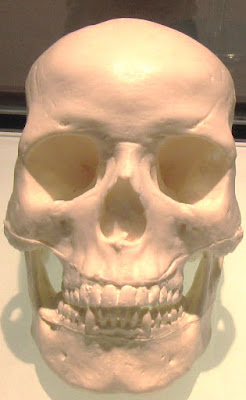Write a list of the tasks you started or finished today. Write a list of the people you helped or who helped you. Write the name of those whose smile uplift your spirits when you see them. Make a list of the people you worry about or would like to help but don't know how.
Now write a list of world problems you read or hear about in the media.
Which is the longest list?
If the list in the first paragraph is the longest then you are engaged in the process of being human. If the list in the second paragraph is longer then you need to go back and check the first paragraph. It could be you have not observed all the things you have done, all the people you have helped or who have brightened your life.
All the small things that others don't notice, and the things that are not recognized for prizes or as "achievements", list those. If you washed dishes - list all the times you washed them - breakfast, lunch, supper.
Even the list of those you worry about or don't know how to help is a human endeavour.
Make a list of mistakes you have made and people you have offended. Make a list of the goals you thought you would achieve but haven't. Make a list of all the feelings you have experienced.
Are the world problems still greater than your list?
Now make a list of all the beliefs you started with when you were young. If you still believe them now put a ✓ next to them. Those you discovered were wrong put an x by them.
Right or wrong, all of this is what it means to be human. You are not good or evil, hero or victim, winner or loser. You are not a simple descriptor.
What we read about in the media or books are constructs that help us compare ourselves and our lives with others. If we forget to engage in our own lives we are digesting other people's thoughts and experiences, some of which will be very well developed. And some of which are designed to influence the way we see ourselves.
The problem with the world is that it's dominated by propaganda that presents the masses as disposable, as nothing. The message in media is that we must strive to be somebody, otherwise we are nobody. To be somebody is to be a thing. A carpenter, anthropologist, bank manager, teacher. A thing that strives to remove the human from the discipline. That we must prove to be superior even though we may become more destructive, hurtful and miserable.
Once we give up our humanity and see ourselves as numbers on a spreadsheet, we dissociate from the connections between our thoughts, feelings, and practices developed over centuries of evolution. We judge our worth based on the things we own, we begin to see others as things, as problems.
We are not problems. We are the ones who can, with reflection and insight, fix problems. Not all of them. Not immediately. But by the way we live and the choices we make, we can explore more deeply, what it means to be human.
Subscribe to:
Post Comments (Atom)
WAKE UP! WAKE UP.
You could see what was happening but you didn't know how to stop it! If I knew if I had billions or fame or power I could speak up but h...

-
9: language - every living creature has some form of communication, a way to warn of danger and a way to welcome. The language we use ...
-
https://aish.com/what-are-the-ten-commandments/ #:~:text=The%20Ten%20Commandments First Commandment: I am God your Lord (Life that sprung...
-
It takes four to ten years to study medicine and the learning never ends—specialists research until they die—spend hours on committees...




No comments:
Post a Comment